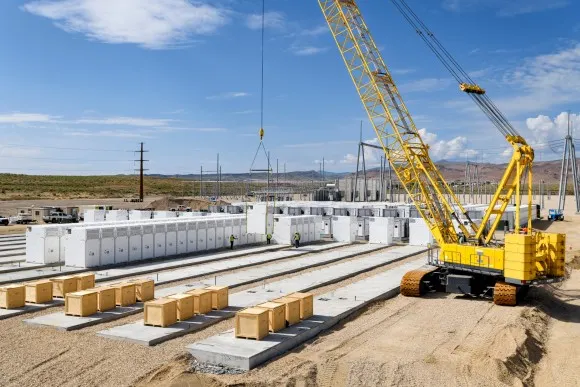
The UK government is poised to reject a controversial plan to divide the nation’s electricity market into zones, according to people familiar with the matter, retaining one wholesale power price throughout the UK.
Government officials have briefed people closely following the policy that they are inclined not to push ahead with the proposal, according to the people, who asked not to be named discussing a decision that hasn’t been announced. They cautioned that a final decision hasn’t been made and that it will need involvement from Prime Minister Keir Starmer.
The Department for Energy Security and Net Zero has been consulting for three years as part of a wider overhaul intended to lower consumer bills and effectively eliminate carbon emissions from the electricity grid by the end of the decade. Achieving this will need investment at an unprecedented pace. Generators have warned the government that such a dramatic shift in the market would threaten business cases in the UK by creating uncertainty and increasing project costs.
Industry groups including RenewableUK wrote to Energy Secretary Ed Miliband earlier this year, urging him to reject the proposal on grounds that it would jeopardize investment.
DESNZ said in a statement on Monday that it would be “categorically untrue” to indicate that Miliband was leaning toward rejecting the proposal.
“No decision has been made,” the department said. “We will provide an update in due course.”
A decision to reject the move will be a blow to the UK’s biggest electricity supplier Octopus Energy which had been a vocal supporter of zonal pricing, arguing it would save consumers money. Chief Executive Greg Jackson, a member of the government’s Industrial Strategy Advisory Council, had been campaigning vigorously for months and Octopus was including lobbying messages in its customer bills.
The UK’s current market model isn’t perfect. More than 40% of the UK’s wind farms are in Scotland, but less than 10% of demand is there. Whereas over a third of electricity consumption happens in London and the south of England. Costs are increasing to manage the mismatch between where electricity is produced and where it’s consumed.
The UK has already built 13 gigawatts of wind power in Scotland, mostly onshore and the grid is getting more clogged up trying to shift that supply. The one-price-system means Scottish households and companies don’t see the benefit on their bills of the low-cost power being produced on their doorstep and are effectively subsidizing consumers in the south.
It’s a similar problem in Germany and requires either huge cables to move the electricity across the country or demand to move nearer to supply.
Zonal pricing “risks deep inequalities and higher prices for consumers in regions with fewer renewables,” Chris O’Shea, chief executive Officer of Centrica Plc, said in April when the debate was heating up among energy companies. “Instead of simplifying, it creates a postcode lottery where those in industrial areas pay more than low-demand regions with abundant wind and solar.”
WHAT DO YOU THINK?
Generated by readers, the comments included herein do not reflect the views and opinions of Rigzone. All comments are subject to editorial review. Off-topic, inappropriate or insulting comments will be removed.




















